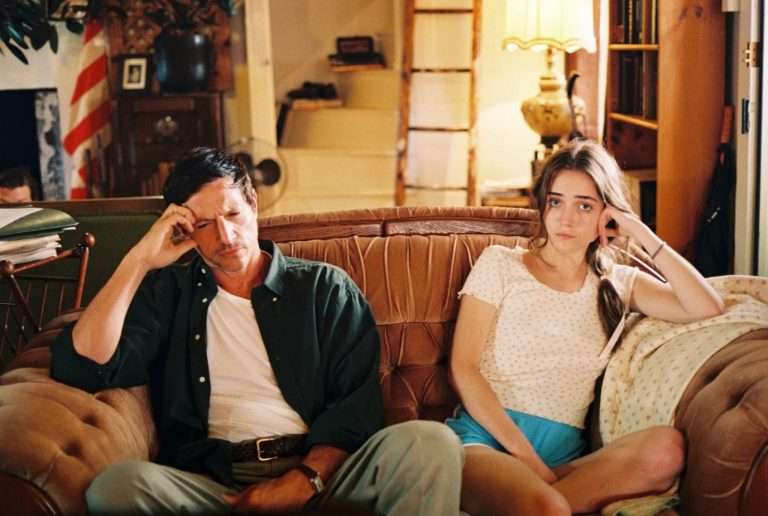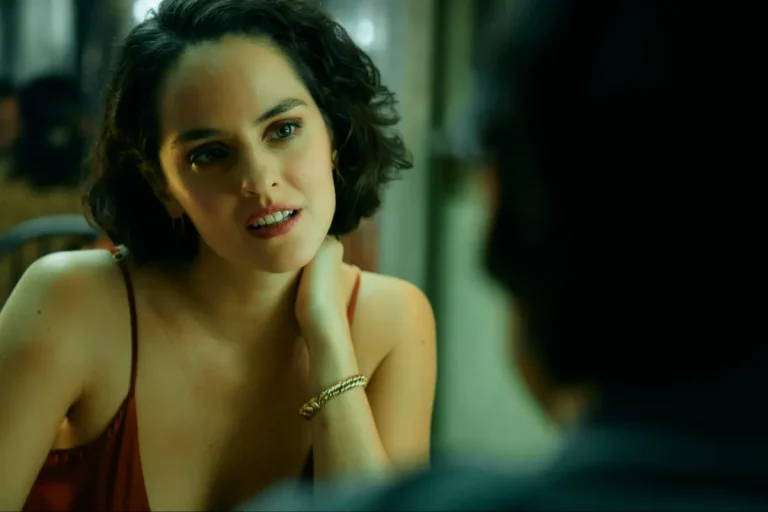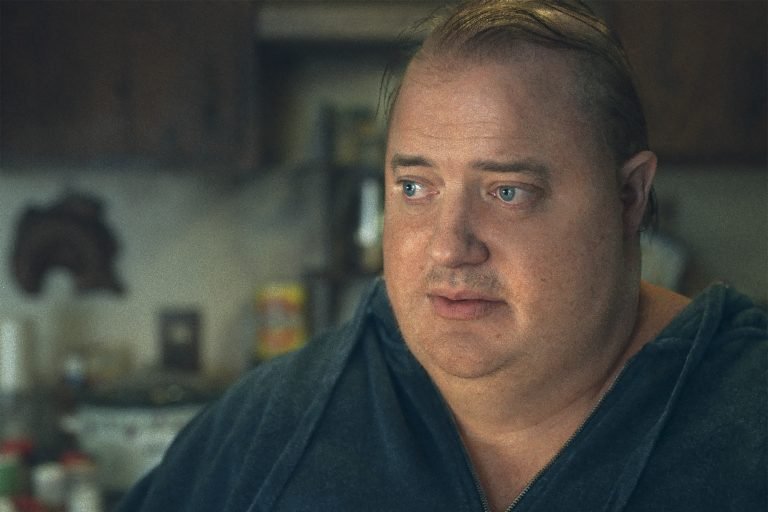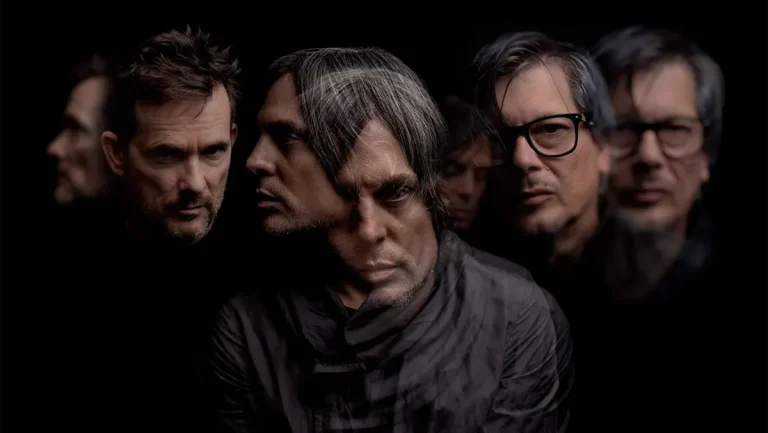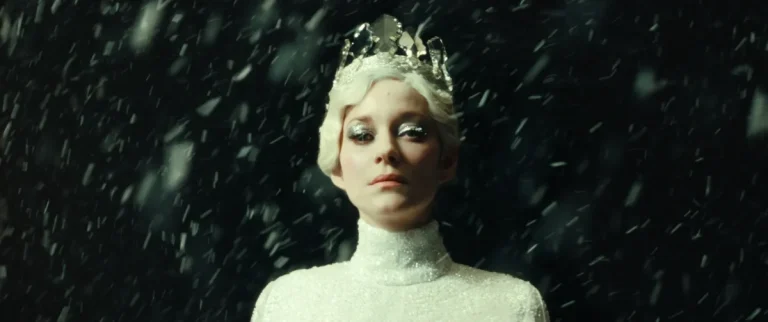In Zuzana Kirchnerová’s “Caravan” (Original title: Karavan, 2025), a mother-son tale prefigures against familiar templates, but the surge of emotion and candour in the telling elevates it far beyond the trite. It’s so emotionally authentic and minutely observed that not much issue can be taken with the fairly predictable rhythms the narrative goes through, at which devastation strikes, as well as ultimate reconciliation. Aňa Geislerová plays the exhausted, battered Ester, mother to the mentally challenged teen David (David Vodstrcil).
Being a mother to David wholly consumes her. Her circumstance is perennially shaded with acute loneliness. People come and go, offer concern and sympathy, and are quick to distance themselves from the mother-son duo. The most cutting jolts of reality spring from friends. The film opens with Ester visiting her friends with David. There’s unease and awkwardness tinting David’s presence amidst them. The friends initially mask discomfort, but when David has his sudden violent episodes, Ester is asked to retreat to the caravan in the garden. But the knell drops when she overhears them musing if they should lend her some money, feeling sorry for her.
However, Ester isn’t one who will bear being looked at with pity. Immediately, she drives away. She’s resilient, incredibly resourceful, refusing to be cut down by what seems to be a constant state of troughs. Come hell or high water, she finds a way of keeping herself and her son afloat. But “Caravan” is admirably wary of not imbuing Ester’s tenacity with enviable heroism.
It registers as essential to survival, scraping out a life on the road, than any grand, upholstered view of those inhabiting society’s edges. Kirchnerová’s screenplay casts no harsh judgment on the mother for expressing fits of sheer exasperation over being stuck as a doomed caregiver. When she helps a stranger, the 29-year-old Zuza (Juliana Brutovska) with her car, it gives way to a flush of new experiences. Even when she first spots Zuza with her dyed hair and insouciant demeanour, she’s arrested.
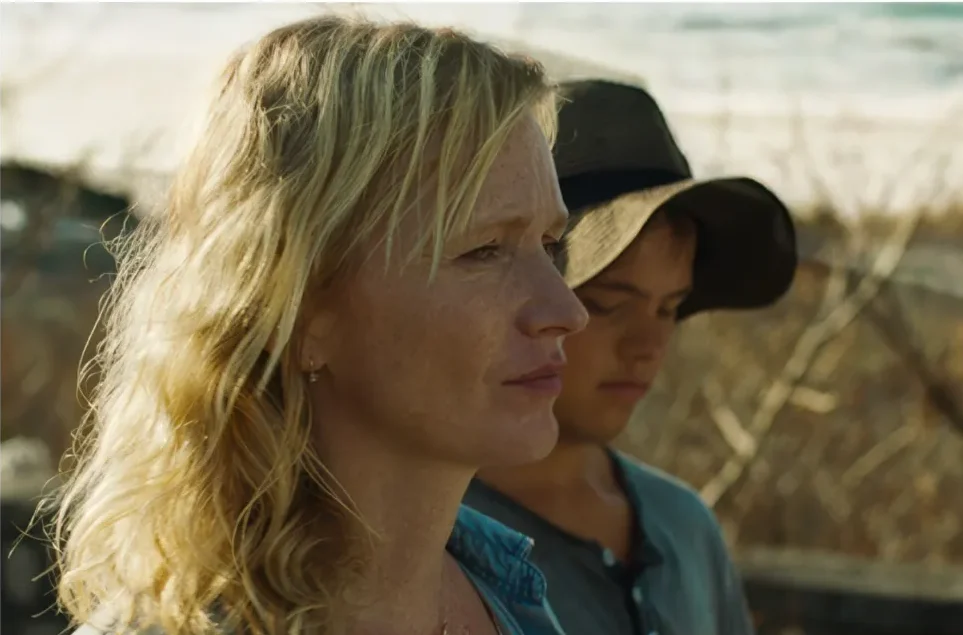
For once, Ester wishes to foray beyond the maternal ambit, eke out happiness and thrill that have long been stacked away. She leaps at life, however, with a fleeting glimmer, teasing adventure, and abandon. For long, she has tended to the daily grind of responsibility. In a bold confession, she asserts her desire to be free of her son, even if for a passing moment. Zuza’s youthful spirit emboldens her. Ester freshly re-encounters her sexual impulses, which had frozen over in arid passivity, stasis. This isn’t to say it’s all easy and linear a track for Ester. There are all sorts of ridiculous, imposing barriers delineating where she and those not particularly well-off like her can relax. Even a chunk of space remains out of reach, like ‘private’ beaches.
It doesn’t escape either Ester or us. This is just a brief blaze of an exciting alternative life, but this joy is on a lease ending soon. It’s just a short trip that’s on borrowed time. Yet, when the spell breaks, it’s wrenching. Kirchnerová weaves these emotional swerves with ease and agility. In a tremendous, richly unmasked performance, Geislerová anchors the film.
The synergy she shares with Brutovska and Vodstrcil is the heartbeat of “Caravan.” Geislerová is so emotionally transparent, holding a stolid centre, we can’t help but feel intensely for her throughout Ester’s journey of individual reclamation. David is besotted with Zuza. Ester prickles initially but doesn’t interject. She pursues her own path of pleasure at a new work gig she lands. She doesn’t tell her lover Marco (Mario Russo) about her son. With Marco, she creates her own little world where her motherhood isn’t overriding.
However, all the bliss is fated to fade. Lovers and vibrant friends, carrying in joy, ultimately skulk away, leaving the mother and son to once again fall back on each other, nursing their shared, individual wounds. They are each other’s best friends, most present support system, despite the stifling emotions, the spiteful urges. “Caravan” charts this relationship with abrasive frankness, unhesitant to accept and articulate the uglier, defeated, bitter moments of absolute helplessness. Emotionally unvarnished, the film speaks to an experience that’s commonly hushed, evaded.



